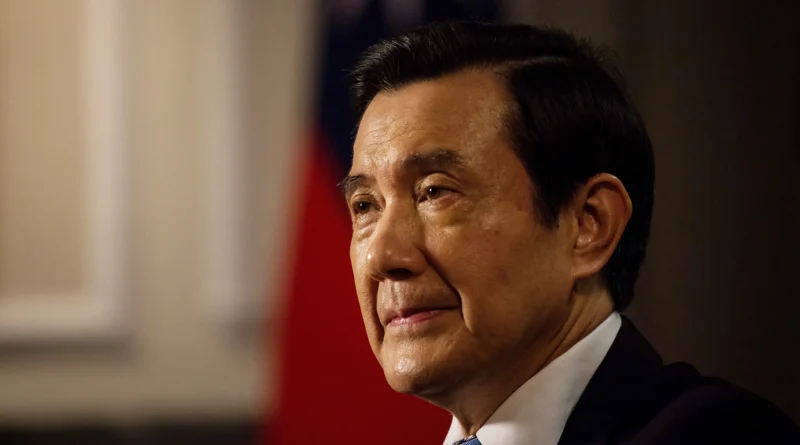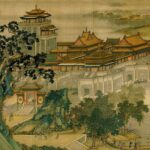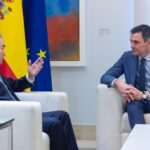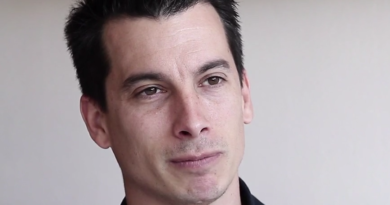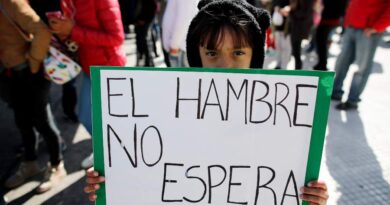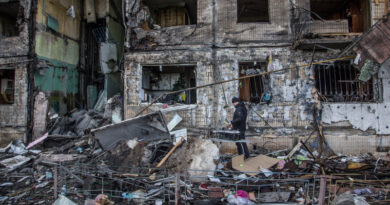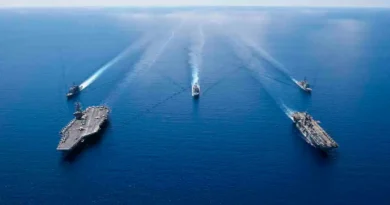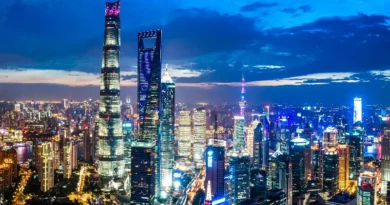The road to Ma Ying-jeou's house
XULIO RIOS
Former President Ma Ying-jeou is visiting mainland China. QA resident of the Republic of China (Taiwan) from 2008 to 2016, he also traveled to the Great Land from March 27 to April 7, 2023. That was the first such visit by a former president of Taiwan.
This year, Ma leads a student delegation. Her agenda includes visiting companies and sites of Chinese historical or cultural importance in the provinces of Guangdong and Shaanxi. Song Tao, director of Taiwan Labor Officeán of the Central Committee of the Communist Party of China (CPC) and the Taiw Affairs Officeán of the Council of State, is your host. Both have agreed when pointing out that “blood is thicker than water”, an evocation of the deep ties that unite the two sides of the Strait.
Because the trip this time includes a stop in Beijing, a repeat of Ma's meeting in 2015 with President Xi Jinping, which then took place in Singapore and with Ma still in office, is considered certain. That meeting marked the first meeting of leaders from both sides of the Taiwan Strait since the end of the Chinese Civil War in 1949.
Before boarding his flight at Taoyuan International Airport, Ma said that amid the current tensions across the Taiwan Strait, he would try during the visit to convey “the Taiwanese people's love for peace and express the hope that the parties can increase bilateral exchanges and avoid war.” “This is a journey of peace and a journey of friendship,” she said.
Ma Ying-jeou's trip takes place just over a month after the inauguration of Lai Ching-te, who will take over from Tsai Ing-wen on May 20, and in a context marked by the reaffirmation of the two paths that define the Taiwanese crossroads: the irreducible hostility towards an independence movement without a majority on the island, but with notable international support and, alternatively, the establishment of bridges that help preserve and develop ties between Beijing and Taipei with the perspective of reunification peaceful.
The ruling Minjindang (PDP) called on Ma to tell Xi that “Taiwan is a sovereign and independent country,” and to make sure to defend freedom and democracy during his visit. Ma's office quickly rejected this suggestion, saying it was a request to assert Taiwan's independence. “Taiwan is not a country, but part of China,” appealing to the letter of the current Constitution.
Shortly before the presidential and legislative elections on January 13, Ma was interviewed by the German state broadcaster Deutsche Welle. When asked if he trusted Xi, Ma said that when it comes to cross-Strait relations, you have to trust the other party.
Therefore, it is clear that Ma is clearly committed to peaceful reunification and to progressively advance along that path. Continental complicity is total.
There were few political repercussions from the historic meeting between Ma and Xi in 2015. This may not be the case because it will take place in a different context. Ma was then on the exit ramp. Now a new stage begins in Taiwan with the risk that the security situation will destabilize. How much can Ma do to avoid it? What is Ma's political value and what is his influence in correcting this hypothetical scenario? Even how much is his influence on the KMT when there are sectors in his own formation that consider the 1992 Consensus to be “a little obsolete”? Can Ma drag the other pole of the opposition, the PPT, into this dynamic? Will Ko Wen-je be the next to visit Beijing? Certainly, this would have important political value.
During your reciente telephone conversation with US President Joe Biden, andChinese President Xi Jinping stated that the Taiwan issue is the first red line that should not be crossed in relations between China and the United States. China is not going to sit idly by, he indicated, Andurged the US side to translate his words in concrete actions which generally go in the opposite direction.
The PDP insists on preparing for war, brandishing the continental threat of resorting to force as an argument to unite with its electorate and win global liberal solidarity. Ma's journey wants to hollow out this discourse by showing that another path is possible.
Xulio Ríos He is an emeritus advisor to Chinese Policy Observatory.

